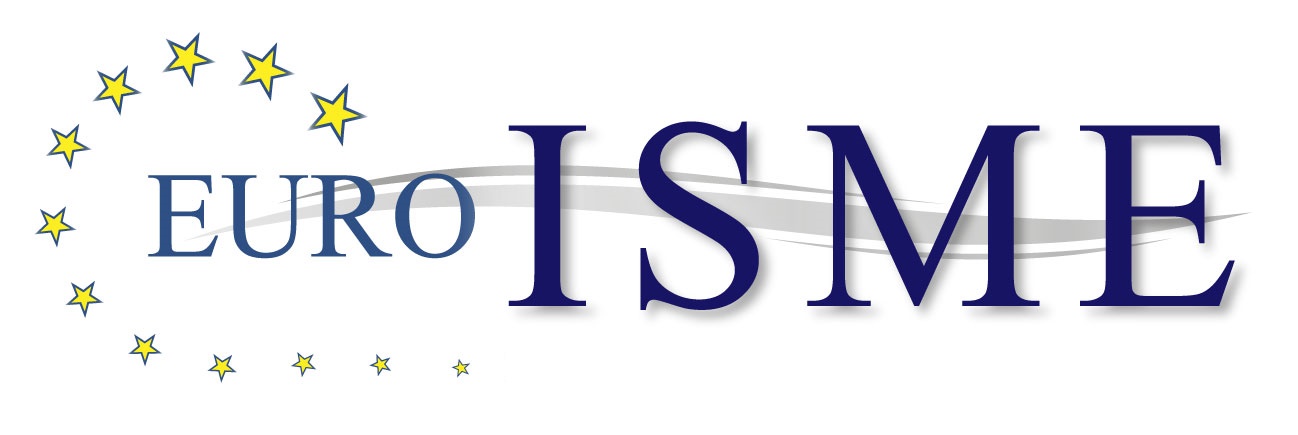8th EuroISME Annual Conference
13–16 May 2018
Infantry Academy, Toledo
Conference Report
The 2018 annual conference took place for the first time in Spain. The venue was the Academia de Infantería based in the historical garrison of Toledo.

Toledo was declared a World Heritage Site by UNESCO in 1986 for its extensive monumental and cultural heritage and it is known as the “Imperial City” for having been the main venue of the court of Charles V, Holy Roman Emperor, and as the “City of the Three Cultures” for the cultural influences of Christians, Muslims and Jews reflected in its history. It was also the capital from 542 to 725 of the ancient Visigothic kingdom, which followed the fall of the Roman Empire, and the location of historic events such as the Visigothic Councils of Toledo. Toledo has a long history in the production of bladed weapons, which are now popular souvenirs of the city.
The Infantry Academy is the central institution for the training of the infantry troops of the Spanish army.
In his “Welcome Speech, the Commandant COLONEL FRANCISCO JAVIER MARCOS IZQUIERDO recalled that the Academy is popularly known as the home of the Spanish Infantry and he continued by saying that “today it is also the home of the International Society for Military Ethics in Europe”.
The conference was outstandingly backed by our hosts : Euro-ISME is exceedingly grateful to the all involved members of the Academy Staff for their active support and for giving access to the excellent facilities. All participants agreed that our association once again managed to select a very spectacular venue!
Moreover, the Board had the right touch when programming the conference theme : Although it was the drone (whether armed or unarmed) that has most captured the public’s interest, new technology like autonomous or semi- autonomous weapon systems and artificial intelligence actually moving from science fiction to science fact was also addressed by competent speakers who agreed that all these issues will have important ethical implications, not just for the military, but for everyone, because there are potential risks to privacy and the control of internal political affairs and international relations!
Impressions from the Conference
Conference items
The “inaugural speech” was given by H.E. Prof. Dr. MARCELINO OREJA AGUIRRE, honorary President of the Royal Academy of Moral and Political Sciences. whose excellent contribution will be published in the conference volume of the book series.
He concluded by saying that “the transformation of the Armed Forces, the introduction of scientific advances unthinkable a few years ago, requires changes in the organization and doctrine, imposes new missions, demands better instruments and calls for open-mindedness.
With this, the Armed Forces adapt to the changes of the last decades, so technological, social and even cultural innovations will have to fit into an efficient system, in which tolerance, as well as technology and talent, will definitely become a moral category.
This path of “positive crisis” has long been followed by the Spanish Armed Forces, which, as an institution, enjoy the highest consideration among Spaniards, as revealed by the latest sociological surveys.
All these changes are essential and mentalities need to be adapted for a permanent process of transformation and renewal, since “constant change and adaptation are in the nature of any military institution”. In short, it is the innovation of the civil and business world to adapt to society and serve more efficiently and rigorously.”
The opening session was brilliantly completed by the “key note speech” given by Professor Dr. Holger H. Mey, senior lecturer at the University of Cologne and Vice President Advanced Concepts at Airbus Defence and Space, captivating the audience with “some ethical considerations from a Defense Analyst’s and an Industry Perspective about Autonomous Systems, Combat Robots, and Artificial Intelligence”
The conference was also the occasion for the presentation of the recently published 4th Volume of the “Euro-ISME Book Series on International Studies in Military Ethics” , co-edited by our Board Member Dr. Magdalena Revue and Dr. Marie-des-Neiges Ruffo de Calabre.
Based on the results of the 6th Annual Conference in Oslo, this volume is entitled “Ethics in counter-terrorism” “ in which international scholars and practitioners attempt to give first answers to very serious ethical interrogations like : “Is the war against terrorism any different from other wars? Should we fight terrorism with the same methods that we fight other wars? Should we abide by the same rules? Should we apply the same ethics?”
The refined contributions to the Restraint-in-War-Conference 2017 will soon be consolidated and published next year in a 5th conference volume under the direction of Dr. Patrick Mileham (ed).
After this memorable prelude, the participants continued in various plenary and parallel sessions to discuss theoretical and scientific issues related to fundamental concepts for the use of Artificial Intelligence, robots and other advanced technology in military operations..
The official Annual Dinner Banquet was the most suitable moment for the President of the jury, Reverend Dr. Philipp MacCormack, to hand out the trophy to the winners of Euro-ISME’s Prizes 2018 for the best student theses written on military ethics. The prizes have been awarded for the second time and went to Major Ilse Verdiesen, MSC, from the Netherlands Army / Delft University of Technology for her empirical study about “Agency perception and moral values related to Autonomous Weapons” using the Value-Sensitive Design” approach (1st Prize) and Lieutenant-Colonel David C. Glendenning from the Defence Academy of the United Kingdom / King’s College of London for his thesis about “Who really sets the bearing on my moral compass? An assessment of the utility of moral autonomy in the contemporary operating environment (2nd Prize).
The meeting again also provided the opportunity to hold “the Assembly General”. The members unanimously approved the annual reports of the executing directors and of the treasurer and they (re-)elected the members of the Board of Directors for the next tenure of office.
